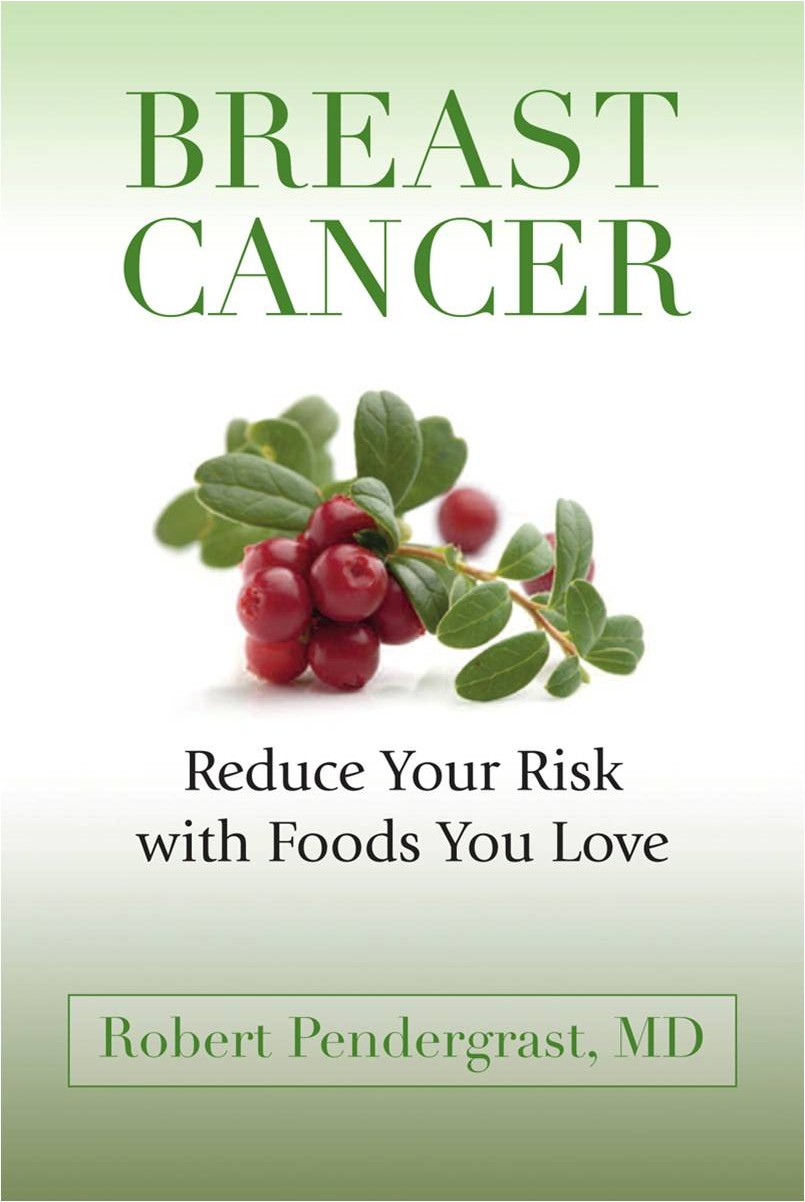Description
Breast cancer prevention for women of all ages, with the unique
perspective of a pediatrician specializing in adolescent health.
This year, close to 190,000 new cases of breast cancer will be diagnosed
in the United States alone. Would you like to learn how to take
yourself out of the group most likely to get that news? You can... with
choices that are easily within your grasp. Start today! Written by a
pediatrician with a passion for prevention, all women, even teens,
will find Breast Cancer: Reduce Your Risk with Foods You Love is clearly
written and straight to the point. The guidelines recommended will have
the greatest impact when started in the preteen years, but it is never
too late to reduce your risk. One section is devoted to healthy eating
strategies for women who are in treatment or breast cancer survivors.
In this simple to follow and easy to read guide, Robert Pendergrast,
MD will show you: Specific actions that are known to reduce risk,
An overall diet plan, 10 specific foods which are powerhouses of
prevention, A guide to avoiding toxins in foods and the environment,
and An integrative approach to health and wellness. Carefully
researched with scientific citations at every step, Breast Cancer:
Reduce Your Risk with Foods You Love is an easy to read practical guide
women of all ages can enjoy.
The Story Behind This Book
Robert Pendergrast, MD is a graduate of Furman University, the Medical College of Georgia and the Johns Hopkins University School of Hygiene and Public Health. He is a Fellow of the American Academy of Pediatrics, certified by the American Society of Clinical Hypnosis and a graduate of the Fellowship at the University of Arizona Center for Integrative Medicine. Dr. Pendergrast was voted Educator of the Year by students and continues his passion for education as a faculty member at the Medical College College of Georgia. Since completing a Fellowship in Adolescent Medicine, he has 20 plus years in teaching its unique perspective to medical students and physicians-in-training. Additionally, he has a consulting private practice for all ages where he combines his love of nutritional medicine, clinical hypnotherapy and herbal medicine. He is a sought after speaker at medical education meetings for professionals and women's groups. With his wife Gail, he teaches workshops, providing empowerment for individuals to take charge of their own health. Dr. Pendergrast can be reached through his website, Holistic-Medicine-MD.com
Praise and Reviews
In an elegantly simple and personal style, Dr. Robert Pendergrast has wrapped a wealth of information into Breast Cancer: Reduce Your Risk with Foods You Love.
His message is the same one I have been teaching for years: Nutrition
is the key to disease prevention. If all women were to follow this
guide to optimum breast health, it would mark a turning point in the war
on breast cancer, from treatment to primary prevention. I will
recommend this book to patients, colleagues, and friends.
Andrew Weil, M.D., author of Eating Well for Optimum Health,
Healthy Aging, Founder/Director of the Arizona Center for Integrative
Medicine
Let thy medicine be thy food and thy food be thy medicine” is perhaps even truer today than when it was coined by Hippocrates more than 2000 years ago. The relationship between diet and cancer is an important one, and women in particular, want to know what they can do to reduce their risk. Taking information that is often confusing and contradictory, Dr. Robert Pendergrast has written a book that is practical, highly informative and easy to understand. Any woman who is looking to give herself “an edge” against cancer should read this book. Tieraona Low Dog, M.D., Director of the Fellowship, ArizonaCenter for Integrative Medicine
Robert Pendergrast has written more than a good book on nutritional prevention of cancer. Breast Cancer: Reduce Your Risk with Foods You Love is a model for a new way for Americans to think about health, whether cancer, heart disease or any other serious health issue. Instead of hoping to find it early and treat it, Robert points out the way to never have to find it at all!
Dr. Roger Jahnke, CEO of Health Action Synergies, author of The Healer Within
Correctly noting that “unfortunately, nutritional illiteracy is still
commonplace among doctors,” Robert Pendergrast immediately joins the
ranks of the literati with Breast Cancer: Reduce Your Risk with Foods You Love. This easily accessible gem will become an invaluable resource not only for women but for the men and children in their lives because it offers sane nutritional information that will likely reduce the risk of other malignancies as well. This book will find its place right between Foods That Fight Cancer and The Cancer-Fighting Kitchen on my office bookshelf, readily available to recommend to all the patients that I counsel. Thank you, Dr. Pendergrast, for presenting such a wealth of information in a practical guidebook so easy to digest and absorb!
Donald I. Abrams, M.D., Integrative Oncology, University of California, San Francisco, Osher Center for Integrative Medicine; Chief, Hematology-Oncology, San Francisco General Hospital; Professor of Clinical Medicine, University of California, San Francisco
As a two-time breast cancer survivor, I will strongly encourage my friends and professional contacts to read and put into practice Dr. Pendergrast’s book, Breast Cancer: Reduce Your Risk with Foods You Love. Not only are the guidelines for good nutrition in this book a necessity if I am to remain cancer free, women also can use it as a guide to maintain optimal overall health.
Nita Zachow, Executive Committee, Breast Cancer Prevention Coalition, Patient Advisory Committee, Medical College of Georgia
